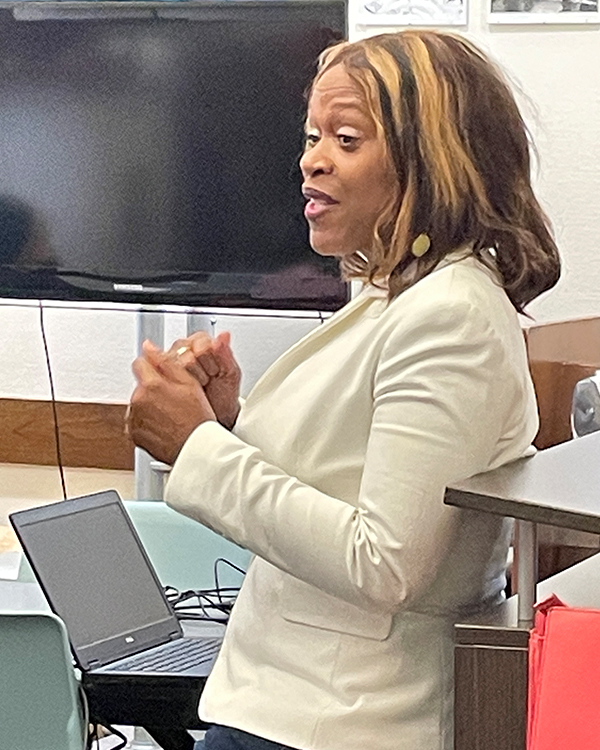Faculty member will document COVID-19 experiences in East St. Louis
body copy Heading link

Karen Flynn, PhD, the Terrance and Karyn Holm Endowed Professor of Nursing, received a grant from the National Endowment for the Humanities to collaborate with East St. Louis residents to build an archive of their experiences during the COVID-19 pandemic.
The grant will allow Flynn, who is also director of the UIC College of Nursing’s Midwest Nursing History Research Center, to collect oral histories from senior citizens and first responders, beginning as soon as this spring.
She will also facilitate three “content collection” events with East St. Louis families, including children and teens, where they can participate in one-hour sessions to share narratives – written, visual or spoken word – of their experience during the COVID-19 pandemic.
Flynn’s proposal is one of 18 projects that were awarded Cultural and Community Resilience grants, part of the American Tapestry initiative, intended to support community-based efforts to preserve cultural heritage in the wake of climate change and COVID-19.
East St. Louis, Illinois, which has a population of about 18,000 people, is located directly across the Mississippi River from St. Louis, Missouri and is considered a “disadvantaged community” by the White House. In June 2020, East St. Louis community members gathered for “6 Feet in the Street – Neighbors Caring for Neighbors,” a socially distanced rally to bring attention to the disproportionate death rate of African Americans and other minorities due to COVID-19.
“Residents are aware of the inextricable link between structural inequalities and how COVID-19 impacted their city and their families,” Flynn wrote in her project proposal. “While this project is about memorializing and memory, it is also about community care, Black [futures], and how Black people redefine resilience, paying attention to their hopes and aspirations for themselves and their city in the aftermath of COVID-19.”
Flynn is choosing to conduct oral histories with senior citizens, whom she calls “elder stalwarts,” because they are “the backbone of Black communities,” she wrote, adding, “given that a significant number of elderly people died from COVID-19 in East St. Louis, there is a particular urgency to conducting these histories.” First responders will include clergy, nurses, teachers, and funeral directors, “who were tirelessly supporting and caring for their communities,” she wrote.
The community collection event will allow her to involve children and teens, “whose young lives were upended by the pandemic but whose voices are often missing in academic and public-facing scholarships,” she wrote.
Consultants on the project include the former mayor of East St. Louis, Emeka Jackson-Hicks, and Brinton McKenzie, an assistant professor of psychology at Harris-Stowe State University and former pastor of New Jerusalem Seventh Day Adventist (SDA) Church in East St. Louis. As project consultants, Jackson-Hicks and McKenzie will confer with Flynn to ensure the objectives are in alignment with the values of East St. Louisans.
Digital files from the oral histories and content from the community collection will be archived and made accessible to project participants and the wider East St. Louis community through websites and platforms.
The NEH is an independent federal agency and one of the largest funders of humanities programs in the U.S. It supports research and learning in history, literature, philosophy and other areas of the humanities by funding selected peer-reviewed proposals from around the nation.